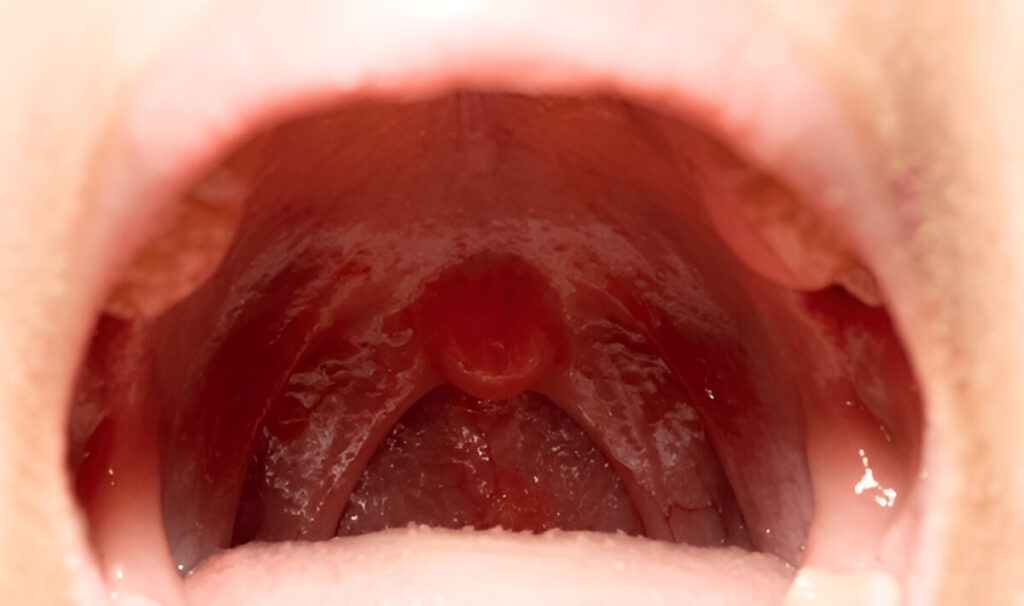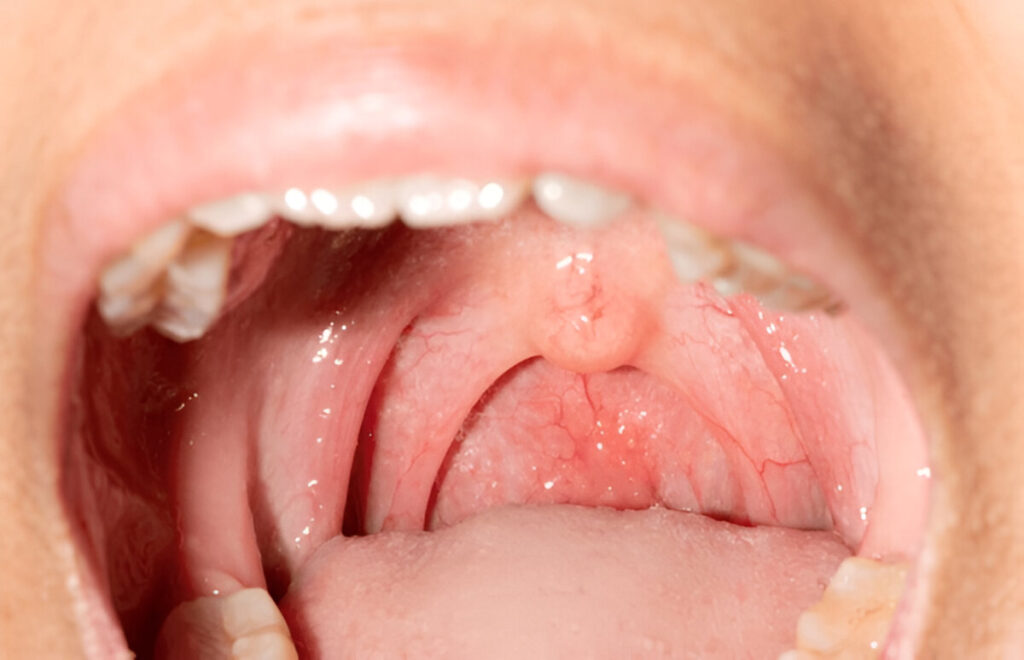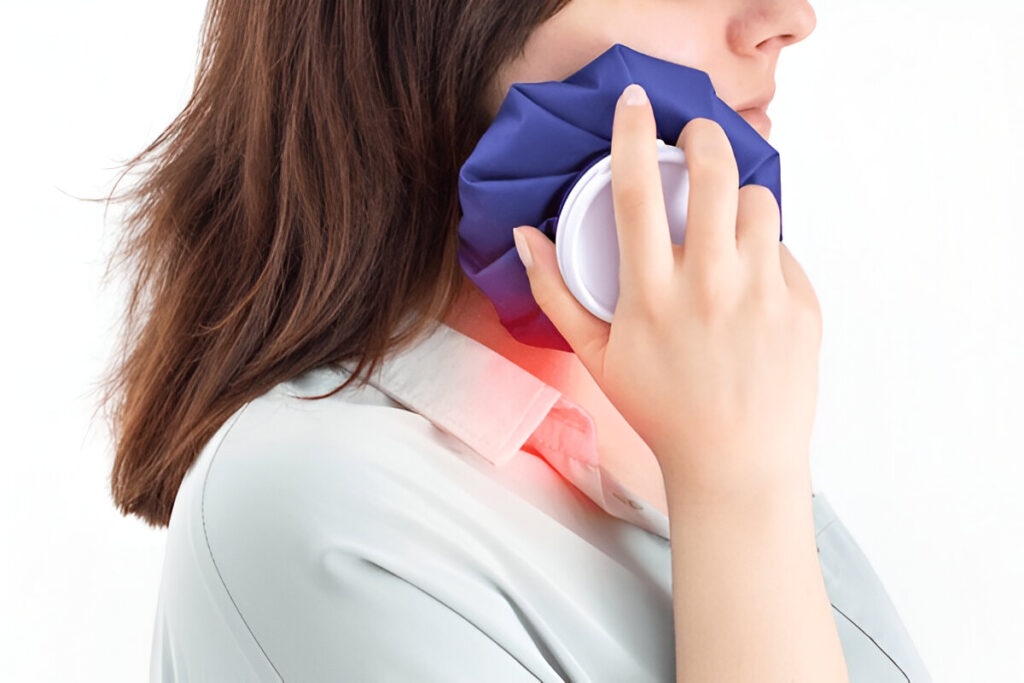Swelling in the area referred to as the palate inside the mouth is a common condition. It can result from inflammation or edema. Additionally, injuries, trauma, or dental issues may also cause swelling of the palate.
Swelling in the palate can significantly affect quality of life. For those seeking quick relief, we’ve explained in detail how to treat palate swelling!
Palate Swelling

Swelling in the palate area of the mouth can occur due to inflammation and infections. This condition can lead to problems such as pain in the mouth, discomfort, and difficulty eating. The most common causes of palate swelling include dental abscesses, inflammation of the gums, and oral infections.
In addition to swelling, symptoms like bleeding, increased bad breath, fever, and difficulty swallowing may also occur. Before explaining how to treat palate swelling, we’ve provided a brief overview of this condition. Now let’s explore what you can do to alleviate swelling and pain in the palate!
How to Treat Palate Swelling at Home?

Palate swelling can be a simple result of trauma or a sign of a health issue. For instance, swelling may occur due to a hard piece of food poking the palate while eating. However, it can also result from infections. For severe swelling, pain, or persistent symptoms, you should definitely consult a specialist.
If the swelling is caused by a minor issue, it may heal on its own. If you’re wondering what you can do to support the healing process, we’ve listed all the methods to treat palate swelling!
Here are some methods you can apply at home for palate swelling:
- Gargling with saltwater can soothe inflammation and swelling in the mouth. However, limit the gargling to a maximum of 30 seconds.
- You can apply a clean towel dipped in cold water to the swollen area. Cold compresses generally have a soothing effect on swelling and pain.
- Instead of saltwater, you can use antiseptic mouthwashes available at pharmacies. These can reduce pain and infection.
- It’s observed among the public that massaging the area with pure olive oil can provide relief.
- Drinking plenty of water can help your body eliminate toxins.
- If there’s swelling and sensitivity in the palate, warm, soft foods are recommended during the healing process.
The methods listed above are commonly known and their effectiveness can vary from person to person. To determine the root cause and receive proper treatment, consult a specialist!
We’ve outlined what you can do for palate swelling! Now, if you’d like to understand its causes, we’ve listed them for you!
Causes of Palate Swelling
The palate is a sensitive structure located at the upper part of the mouth. It can swell due to hard foods, trauma, or infections. While the swelling may resolve on its own, professional support may be necessary in some cases.
Here are the possible causes of palate swelling:
- Dental abscesses,
- Tooth decay,
- Gum inflammation,
- Dental plaque,
- Oral infections,
- Canker sores,
- Trauma,
- Burns,
- Damage from hard foods,
- Allergic reactions,
- Sinus infections,
- Tumors in the palate,
- Hormonal changes, especially in women,
- Smoking or tobacco use.
For those wondering why palate swelling occurs, we’ve listed the causes. Swelling can result from a combination of two or three of these causes or entirely different factors. If the swelling persists for a long time and is painful, consulting a doctor is recommended.
Palate Swelling and Bleeding
Palate swelling is a common condition. It may resolve on its own or require medication. In some cases, swelling may also be accompanied by bleeding.
Palate swelling and bleeding can be caused by trauma. For instance, eating hard foods or using a fork or spoon can damage the palate. Additionally, bleeding and swelling may indicate a serious problem in the mouth.
As the swelling progresses, the blood vessels in the palate may be damaged, making the palate more sensitive. Even minor injuries can lead to bleeding.
To treat palate swelling and bleeding, it’s essential to identify the underlying cause. Often, when the primary issue is treated, the swelling, pain, and bleeding also subside.
How to Treat Palate Inflammation?

Swelling in structures like the gums or palate in the mouth may result from palate inflammation. This can occur due to injuries, gum diseases, or infections.
To relieve palate inflammation at home, you can use saltwater or mouthwashes. Paying extra attention to oral hygiene during this period can prevent the condition from worsening. While home remedies may alleviate pain and inflammation, you should consult a dentist for proper treatment.
Antibiotic treatments are often used for oral inflammations. Antibiotics can reduce symptoms like pain and swelling while killing bacteria and slowing their growth. After a while, your palate will return to its normal state.
Oral antiseptics and pain relievers are also used for inflammation in the mouth. These can accelerate the treatment process.
For more detailed information about pain relievers, you can check out our article titled “Painkillers for Toothache.”
How Long Does Palate Swelling Last?

Swelling in the palate can be quite uncomfortable. If you’re experiencing it, you might wonder how long it will take to resolve. If the swelling is due to a minor issue, it typically subsides within 2-3 days. However, bacterial infections may require medication. In cases of infection, the treatment and recovery period can range from 4-7 days.
If the swelling is caused by a tumor or cyst, the recovery time will depend on the treatment. In such cases, consulting a doctor is essential.
We’ve explained how to treat palate swelling in detail. We’ve also answered questions about this topic. For more information about oral and dental health, visit our blog!
Don’t forget to take advantage of our free initial examination offer and check out our services!

 English
English Turkish
Turkish Deutsch
Deutsch العربية
العربية![[:en]How to Treat Palate Swelling? Methods You Can Apply![:tr]Damak Şişmesi Nasıl Geçer? Uygulayabileceğiniz Yöntemler![:de]Wie behandelt man eine Schwellung am Gaumen? Methoden, die Sie anwenden können![:ar]كيف تعالج تورم سقف الفم؟ طرق يمكنك تطبيقها![:] Damak Şişmesi Nasıl Geçer?](https://proestetik.com.tr/wp-content/uploads/2024/12/Damak-Sismesi-Nasil-Gecer1.png)










